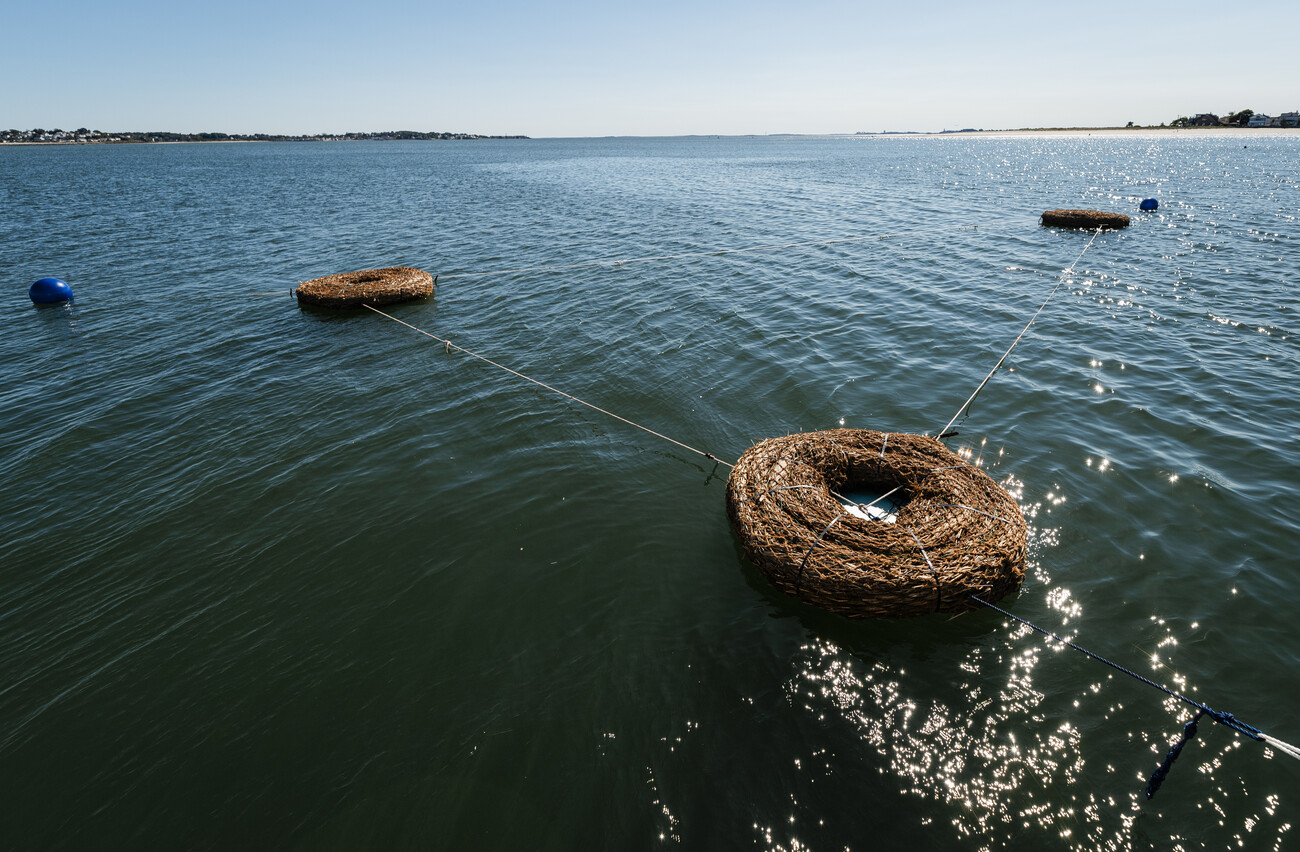

[ad_1]
LYNN — The Emerald Tutu, a National Science Foundation-funded research project, is on a mission to find an inexpensive, nature-based alternative to coastal erosion.
The idea is to deploy a green coastal resilience infrastructure that would absorb wave energy. A network of “tutus”- would be similar to a marsh and would function to protect the shoreline from wave damage, while also being aesthetically pleasing and recreational.
“It’s thinking about infrastructure as something that is more like a garden and less like a massive wall… That’s been proposed for the Boston Harbor,” Project Lead Gabriel Circa said. “We should focus our energy on improving the coastline itself and making that more resilient.”
Prototypes of the tutus, made of biomass modules, have been deployed in various places in East Boston and the project’s newest testing waters is Lynn Harbor.
The Emerald Tutu team, with the help of Captain John Walsh, ventured out of Marine Boulevard last week to install test tutus in Lynn Harbor.
“What we’re trying to do essentially is trying to rebuild the marshes that were here,” Circa said, noting much of what was filled in to be a parking lot used to be marsh.
Circa said the tutus that were installed at Lynn Harbor were made up of phragmites wrapped in a coconut fiber netting. There is also polystyrene foam inside to help with buoyancy, but the team’s goal is to have as much nature-based material in the tutus.
The tutus are then strapped to anchors and placed in the water near the shoreline.
Typically the models will have plants inside of them as well, but as of now, the Emerald Tutu crew is testing how well the dead biomass will uphold the waves of Lynn Harbor.
Ultimately over time, a successful tutus will break down the dead biomass and begin to show healthy marsh grass from the marsh grass seeds that will be wrapped into the tutus.
Circa said they chose Lynn to install the sites because its coastline is eroding due to decades of industrial work and pollution.
“The series of coastal issues in Lynn are exactly the coastal issues that we are trying to address,” he said.
Circa said if the project were able to build out a large network of the tutus, it would reduce wave energy and provide the most protection from coastal erosion.
“Also what nature-based solutions are very good at is providing habitat and water quality improvements, and they are also good at capturing and breaking down pollutants,” he said.
Circa also noted a wooden sea wall is eroding and caving in at Marine Boulevard.
“I think that particular site here should be the place where nature-based infrastructure gets deployed because it’s low and flat… and it does have wave exposure,” he said.
[ad_2]
Source link
24World Media does not take any responsibility of the information you see on this page. The content this page contains is from independent third-party content provider. If you have any concerns regarding the content, please free to write us here: contact@24worldmedia.com

Large part of Lynn Woods remains closed

Swampscott water tests lead-free – Itemlive

Mother needs help providing the Christmas experience

A cheerful fundraiser for Saugus team

Carl Daniel Reiter – The Suffolk Times

Joan Ann (Woessner) Polywoda – The Suffolk Times

Thomas L. Lewick – The Suffolk Times

Jeanette Howard – The Suffolk Times

Nina Mazzaferro – The Suffolk Times

Lynn mayor announces re-election bid

BARRETT: They ate plenty – Itemlive

Brooke Moloney, the Minutewoman – Itemlive